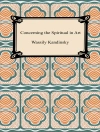Since the later part of the twentieth century, ethnographic museums have come under increasing scrutiny, and many have reflected on and changed their presentation as they questioned collections so often made by colonial officials and explorers. Now is a good time to explore whether new developments in display and cultural politics provide a viable future for ethnographic museums. In particular, policies for restitution by colonial era institutions create a changed landscape for ethnographic display both in the countries from which they originate and in former colonising states.
Reframing the Ethnographic Museum presents a wide range of cultural settings across the world where ethnographic displays have appeared in their local circumstances. Non-European museum strategies raise new problems but also new solutions. Nationalism has been especially significant in museology in Asia, and in Africa new museum objectives have emerged. They share a problematic future in a digital age when the aura of artefacts is challenged by digital repositories and a public less willing to travel to visit original objects. Authors in this book grapple with the new complexities facing them as curators in the contemporary world.
Praise for Reframing the Ethnographic Museum
‘Ethnographic museums have been controversial – and have been undergoing re-invention – for decades. They are considered illegitimate, but have renewed prominence, as highly visible ‘contact zones’ and theatres of cross-cultural mediation. This book reviews and explores the sector with insight and nuance, reporting the successes and failures of key curatorial projects, both within Europe and across the Global South.’
Nicholas Thomas, University of Cambridge
Inhoudsopgave
List of figures
List of contributors
Part I: The historic legacy of ethnographic museums
1 The changing politics of ethnographic display: a review
Michael Rowlands, Nick Stanley and Graeme Were
2 Ethnography and art at the British Museum’s Museum of Mankind
Ben Burt
3 Success and failure: the life history of Birmingham’s ‘Gallery 33: A Meeting Ground of Cultures’
Nick Stanley
Part II: Current practices
4 ‘Tervuren remains a place of false memories’: on the impossibility of an epistemological rupture at the Royal Museum for Central Africa (Belgium)
Boris Wastiau interviewed by Arnaud Lismond-Mertes
5 Ethnographic collections at Queensland Museum: histories and politics of exhibiting in a settler-colony
Chantal Knowles
6 ‘We hate ethnography…’: curating beyond description in a post-colonial museum
Sean Mallon
7 The dawn of Japanese anthropology and the ethnographic museum in Japan: reconsideration from a post-colonial perspective
Taku Iida
8 Redefining ethnographic museums and ethnographic displays in China: a century-long debate
Luo Pan
Part III: Future directions
9 Indonesian youth practices in creating a media museum to preserve the sense of nationalism in a digital age
Endah Triastuti
10 Replicas and religious heritage in the ethnographic museum
Ferdinand de Jong
11 Entangled knowledges: re-indigenising biocultural collections at National Museums Scotland
Alison Clark, Shona Coyne, Alistair Paterson and Tiffany Shellam
12 Digital heritage technologies and issues of community and cultural restitution in ‘new style’ ethnographic museums: a digital update
Michael Rowlands and Graeme Were
Index
Over de auteur
Graeme Were is Professor of Anthropology at SOAS, London.












